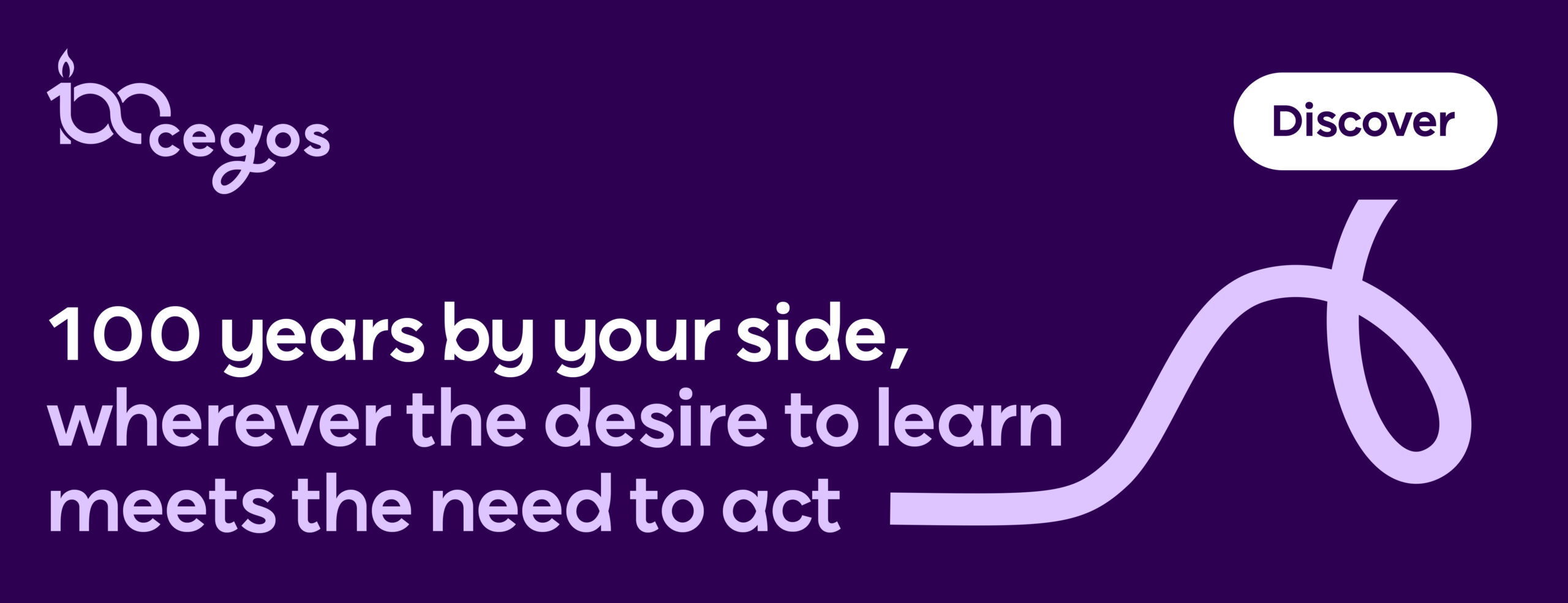
Unlocking the power of Generative AI: Why HR & Learning managers need to act now | White paper

In 2025, ‘Generative AI’ is no longer just a buzzword. It is a transformative force redefining how businesses operate. However, many organisations remain hesitant to fully embrace its potential, with managers adopting a “wait-and-see” approach or experimenting on a small scale.
This hesitation highlights the urgent need for strategic skills training that builds in the benefits of using AI, while developing the human intelligence to do so effectively.
The latest white paper from Cegos Group: “Getting to Grips with AI: Training for Ethical and Effective Use in Business”, guides HR and Learning professionals through this complex but exciting new landscape. Packed with actionable insights, the white paper explores how businesses can adopt AI ethically and effectively while ensuring their teams are equipped to thrive in the era of generative AI.
Why skills are the cornerstone of AI success
“Technology can only produce its benefits through informed adoption by trained and committed employees,” says Benoît Felix, CEO of Cegos Group. While generative AI offers remarkable opportunities – from productivity gains to creating innovative customer solutions – its success depends on one key element. People.
The white paper identifies skills development as the lever that can turn AI integration from an ambitious goal into a tangible reality. Without proper training, however, organisations risk falling into the trap of misaligned strategies, ethical missteps, or low employee engagement.
Assessing your AI maturity
One highlight of the white paper is the Cegos AI Profiler, a practical framework to evaluate your organisation’s AI maturity. In other words, how far down the line of AI adoption does your company stand?
This tool categorises companies into four profiles:

- Explorer: Organisations experimenting with AI without a clear strategy
- Learner: Companies beginning to structure their AI initiatives with focused skill development
- Adopter: Businesses integrating AI into multiple processes with governance in place
- Transformer: Leaders who embed AI at the core of their strategy, driving continuous innovation
By identifying your company’s starting point, the 'Profiler’ helps HR and Learning managers build a targeted roadmap for skills development. For example, a “Learner” company might focus on training “AI champions” to pilot initiatives, while a “Transformer” company may prioritise innovation training.
From hesitation to action: practical steps for building AI skills
Our experts emphasise that developing AI skills requires a tailored approach. But how exactly doe this work?
The white paper provides clear recommendations for HR and Learning professionals:
- Demystify ‘Generative AI’:
Conduct workshops to introduce employees to the possibilities and limitations of generative AI. This builds awareness and reduces fear. - Create an internal Academy:
Set up training programs specific to business lines, helping teams to integrate AI into their workflows. - Foster cross-departmental collaboration:
Identify “AI ambassadors” within each department to champion AI initiatives and share knowledge. - Focus on ethical use:
Integrate risk management and ethical considerations into every training program to ensure responsible adoption. - Monitor and celebrate progress:
Use clear metrics, such as participation rates and productivity gains, to track success and maintain momentum.
Addressing ethical concerns in AI adoption
One of the most pressing challenges in Generative AI is ethics. How do business leaders ensure their AI systems avoid biases, protect data confidentiality, and align with company values?
Essentially, ethical concepts must be integrated into all AI training. By adopting safeguards such as data encryption and AI codes of conduct, companies can mitigate risks and build trust in their AI initiatives.
Why you cannot afford to wait
The accelerating pace of AI innovation means that waiting is no longer an option. Organisations that fail to act risk falling behind their competitors in efficiency, innovation, and talent attraction. As the white paper highlights, the combination of technology and human know-how is what will transform businesses and unlock new opportunities.
Whether your organisation is an “Explorer” taking its first steps or a “Transformer” pushing the boundaries of AI integration, this white paper provides the guidance you need to confidently move forward.
Ready to be part of the AI revolution?
Download the Cegos white paper – Getting to Grips with AI: Training for Ethical and Effective Use in Business – today. Discover how to assess your AI maturity, build the right skills, and position your company as a leader in the generative AI era.
Please fill in the following form to download the white paper:










